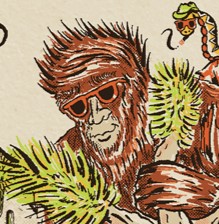So I'm taking the last of my undergrad history courses right now, and one of the books that my professor assigned us is Adam Hochschild's Bury the Chains. We're six chapters in, and so far, Hochschild has centered British abolitionists (primarily Thomas Clarkson) in his accounting of the outlawing of the slave trade in England (I phrase it that way because we all, I assume, know that slavery itself didn't go anywhere after 1833).
Now, I might not be the best read Marxist, but I know enough to be skeptical of any claims of significant historical events being driven by the energy and moral force of "great" individuals rather than the ebb and flow of material reality, a claim Hochschild is definitely making here. He even quotes Emerson in saying "An institution is the lengthened shadow of one man."
Well! I couldn't let that nonsense go unargued, and since lambasting my professor would do no good, I'm here to ask if anybody happens to know the actual reasons the slave trade was outlawed, beyond vagaries about the industrial revolution and wage slavery. Gimme the real nuts and bolts.


One of the arguments that Horne makes in The Counter-Revolution of 1776: Slave Resistance and the Origins of the United States of America Arr! } is that London was being forced to rely on Africans as soldiers in order to maintain their territory in the Caribbean. IIRC, Paris and Madrid had already been using freed slaves as soldiers as well as agitating slave rebellions in the US, so it wasn't necessarily a moral thing, but "Employer competition" type thing. But also, there was a general distaste of slavers in England thanks to the growing distaste for the colonies. Revolution and whatnot. Also also, Somerset v Stewart shouldn't be overlooked as it did spawn some copycats that would probably have contributed to the culture regarding slavery.
I've got that book, perhaps I should've read it before making this post lol. I'll definitely be going through it for citations when I inevitably deconstruct Bury the Chains. My professor has been heaping praise on it this whole term, so I'm sure that'll make me popular.
It's an interesting read. There's a couple of claims I've wanted to look more into like that there was legislation discussed in British parliament towards abolition specifically to snub the Americas, and that early freedom of religion was in response to Bacon's rebellion, iirc. But overall, the amount of info on rebellions and uprisings was fascinating. But also overwhelming.😅 It's one of those books that could benefit from like an interactive map or something.